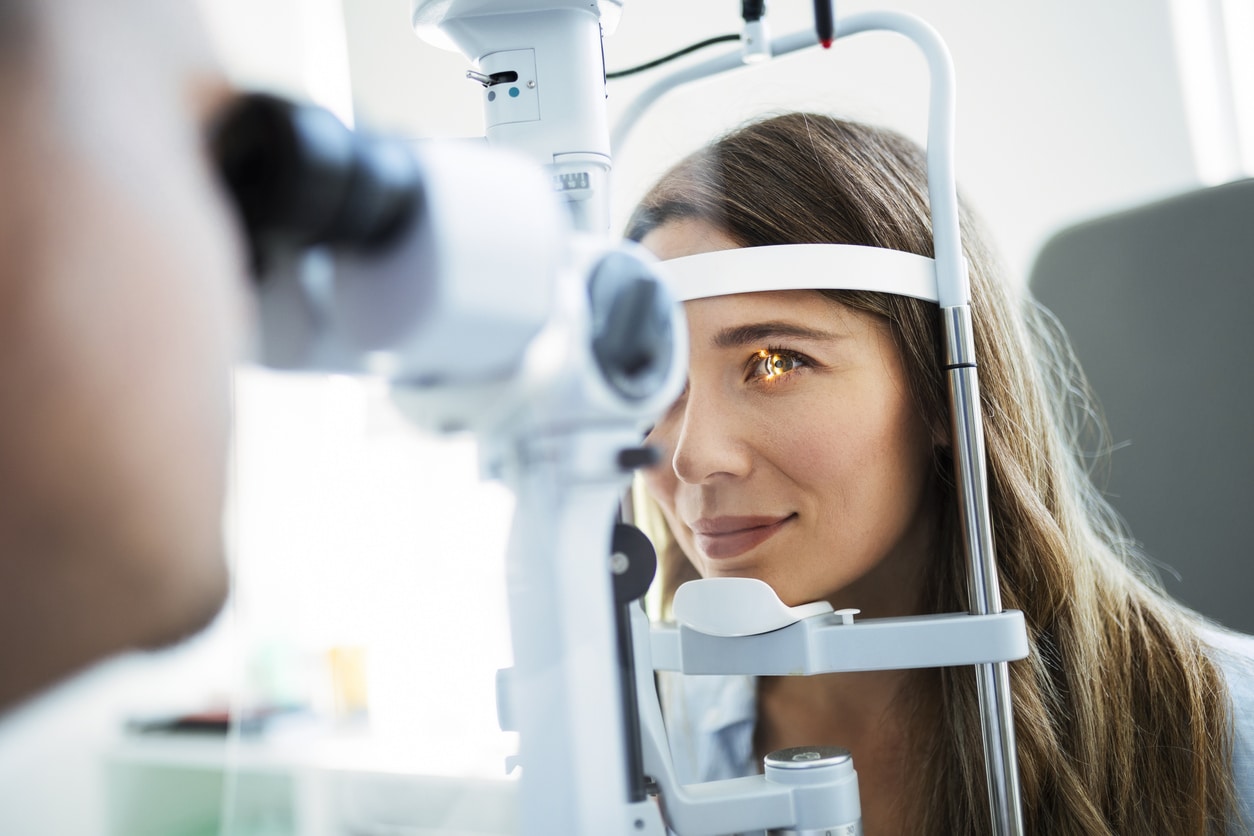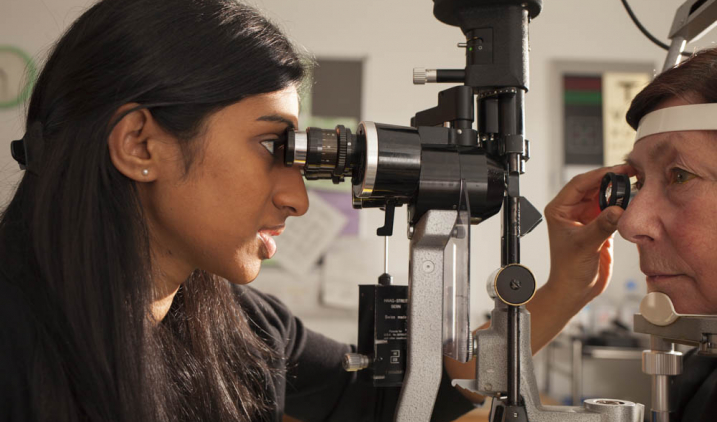Comprehending the Function of an Eye Doctor in Eye Treatment
The function of an eye doctor in eye care is multifaceted, incorporating both the medical diagnosis and treatment of a large array of eye problems. These physician are not only skilled at performing thorough eye evaluations however likewise have the knowledge to identify systemic health and wellness problems that might materialize via aesthetic symptoms. Provided the frequency of eye conditions such as glaucoma and cataracts, recognizing the breadth of an ophthalmologist's obligations ends up being important. Numerous people continue to be uninformed of the pivotal elements of eye health and wellness management that can substantially impact their top quality of life. What could be missing out on from this necessary discussion?

What Is an Eye doctor?
Although many individuals may confuse ophthalmologists with eye doctors or lens, an eye doctor is a clinical physician focusing on the medical diagnosis and treatment of eye problems and diseases. ophthalmologist in nabua. This expertise calls for comprehensive education and learning, consisting of completing a bachelor's level, adhered to by clinical college, and a residency in ophthalmology
Eye doctors are outfitted to handle a large range of problems, from typical refractive mistakes to complicated surgical interventions. They possess a thorough understanding of the makeup and physiology of the eye, permitting them to diagnose problems such as glaucoma, cataracts, and macular deterioration.
Along with medical monitoring, lots of ophthalmologists execute surgeries, such as cataract removal or laser treatments for refractive errors. This dual capability of providing both clinical and surgical care identifies them from various other eye care experts.

Trick Obligations of Ophthalmologists
The key duties of ophthalmologists incorporate a broad variety of tasks important for maintaining and enhancing eye wellness. They conduct comprehensive eye assessments to analyze aesthetic acuity and identify numerous eye conditions, making use of sophisticated diagnostic tools and methods. This includes interpreting imaging studies and performing specialized tests to assess the framework and function of the eye.
Eye doctors are also accountable for prescribing corrective lenses, drugs, and non-surgical treatments to handle eye conditions effectively. In cases requiring surgical intervention, they do a range of treatments, ranging from laser therapies to complex surgical procedures focused on remedying refractive mistakes or resolving a lot more extreme ocular illness.
Individual education and learning is one more critical element of their function. Ophthalmologists educate people about preventative procedures, therapy alternatives, and possible risks associated with eye health. They likewise team up with various other health care professionals to guarantee extensive take care of individuals with systemic conditions that might impact vision.
Furthermore, they stay abreast of the most up to date innovations in ophthalmology via constant education and learning and research, ensuring they offer the most efficient, evidence-based treatment. With these diverse duties, eye doctors play a critical duty in protecting and improving the vision and overall eye health of their people.
Common Eye Issues Treated
Ophthalmologists often come across a variety of usual eye problems that require their competence for efficient management and treatment. One widespread condition is refractive mistakes, that include myopia, hyperopia, and astigmatism. These mistakes can often be corrected with glasses, get in touch with lenses, or refractive surgical procedure.
Another substantial condition is cataracts, identified by the clouding of the eye's lens, resulting in fuzzy vision. Surgical intervention is typically called for to get rid of the cataract and restore clearness. Glaucoma, a leading reason for blindness, includes raised intraocular stress, demanding normal surveillance and prospective surgical or pharmacological treatment to maintain vision.
In addition, age-related macular deterioration (AMD) impacts the central part of the retina, affecting in-depth vision. Administration may include way of life alterations and, sometimes, laser treatment or shots. Diabetic retinopathy, a difficulty of diabetes mellitus, can cause vision loss if left neglected; careful surveillance and prompt treatment are necessary.
The Relevance of Routine Eye Exams
Normal eye examinations play an essential role in preserving overall eye wellness and finding prospective troubles early. Numerous eye problems, such as glaucoma, macular degeneration, and diabetic person retinopathy, can establish without noticeable signs until considerable damage has occurred. Routine exams allow eye doctors to determine these concerns at their onset, permitting timely intervention that can protect against vision loss.
During an eye test, an ophthalmologist examines aesthetic acuity, assesses the wellness of the eye's interior structures, and checks for any kind of abnormalities. These analyses are crucial not only for identifying eye-related concerns but likewise for recognizing systemic health conditions that might show up through ocular signs and symptoms, such as high blood pressure or diabetes.
The regularity of eye examinations can vary based on age, risk factors, and existing health problems. Eventually, prioritizing eye exams cultivates aggressive administration of eye health and wellness, guaranteeing that any possible problems are dealt with promptly, therefore protecting vision and enhancing high quality of life.
How to Choose an Eye Doctor
Selecting an eye doctor is an important decision that can dramatically impact your eye health Full Article and wellness and total well-being. When choosing an eye doctor, consider their qualifications, experience, and areas of field of expertise. ophthalmologist in nabua. Ensure they are board-certified and have finished the necessary training in ophthalmology, which normally consists of a medical level and several years of residency
Recommendations from your medical care medical professional or relied on buddies can supply valuable insights right into prospective prospects. Additionally, looking into online evaluations and patient reviews can assist assess the eye doctor's online reputation within the area. Assess the ophthalmologist's experience with specific conditions or treatments pertinent to your demands, such as cataract surgical procedure, glaucoma monitoring, or pediatric eye treatment.
Location and access are likewise important variables; select an eye doctor whose office is conveniently located and offers adaptable hours. Eventually, picking an ophthalmologist who lines up with your healthcare demands and personal convenience can cultivate a positive lasting relationship focused on preserving your eye health.
Final Thought
In verdict, eye doctors go serve a crucial feature in eye care via their detailed training and experience. By diagnosing and treating a vast array of eye conditions, these physician considerably add to the conservation of aesthetic health. Routine eye assessments are essential for early detection of great site prospective concerns, therefore enhancing total well-being. Selecting a qualified ophthalmologist is vital for obtaining ideal treatment and keeping optimum eye health throughout one's life.